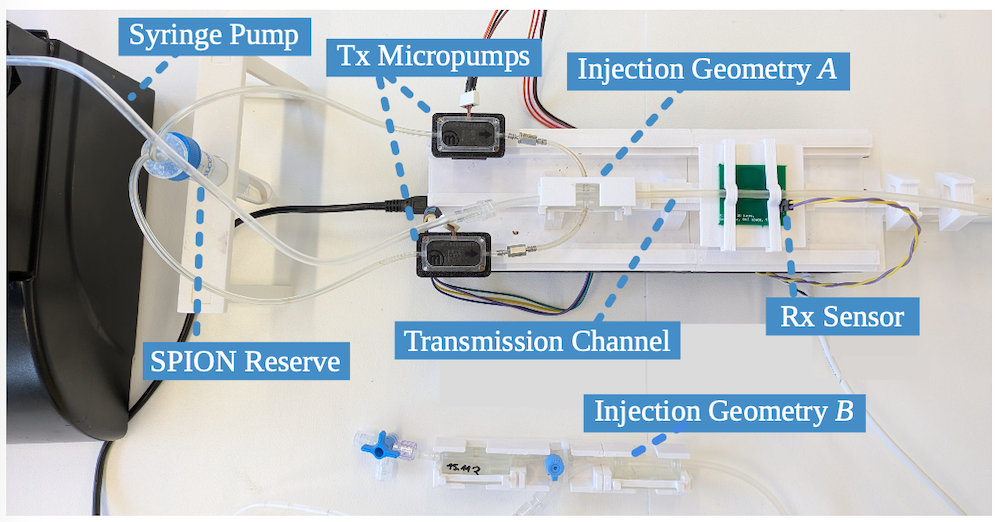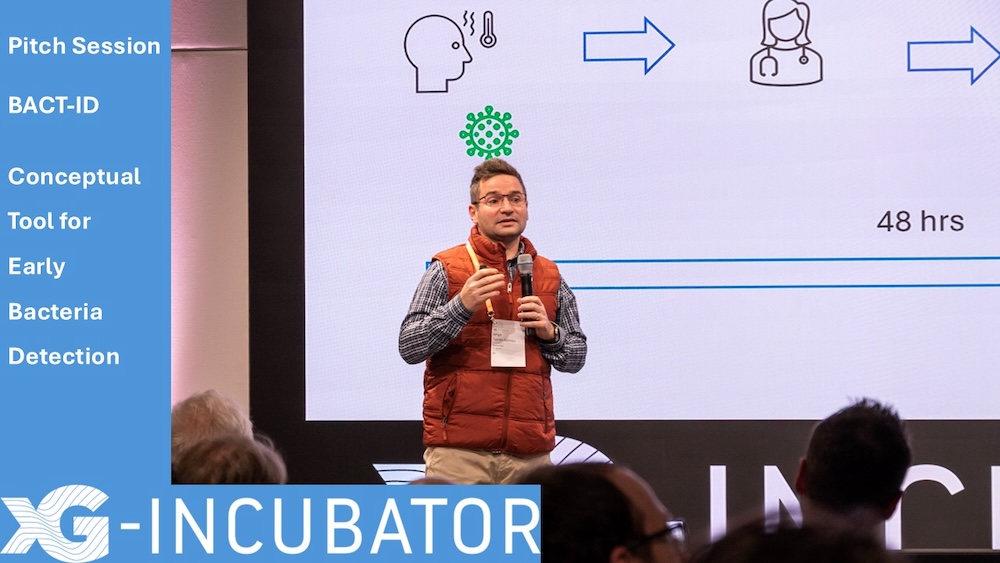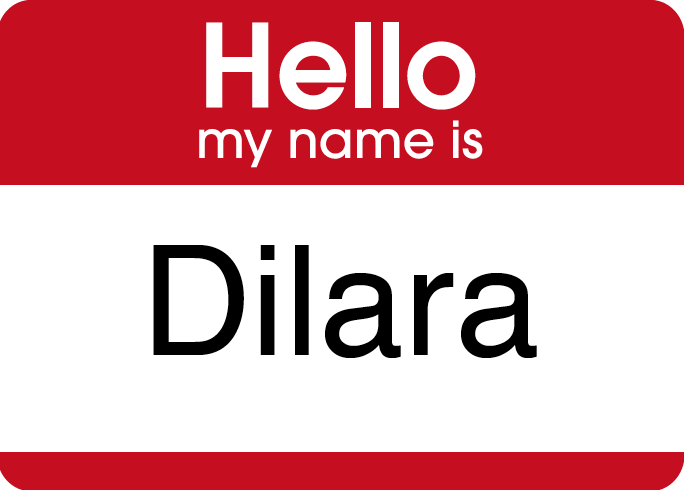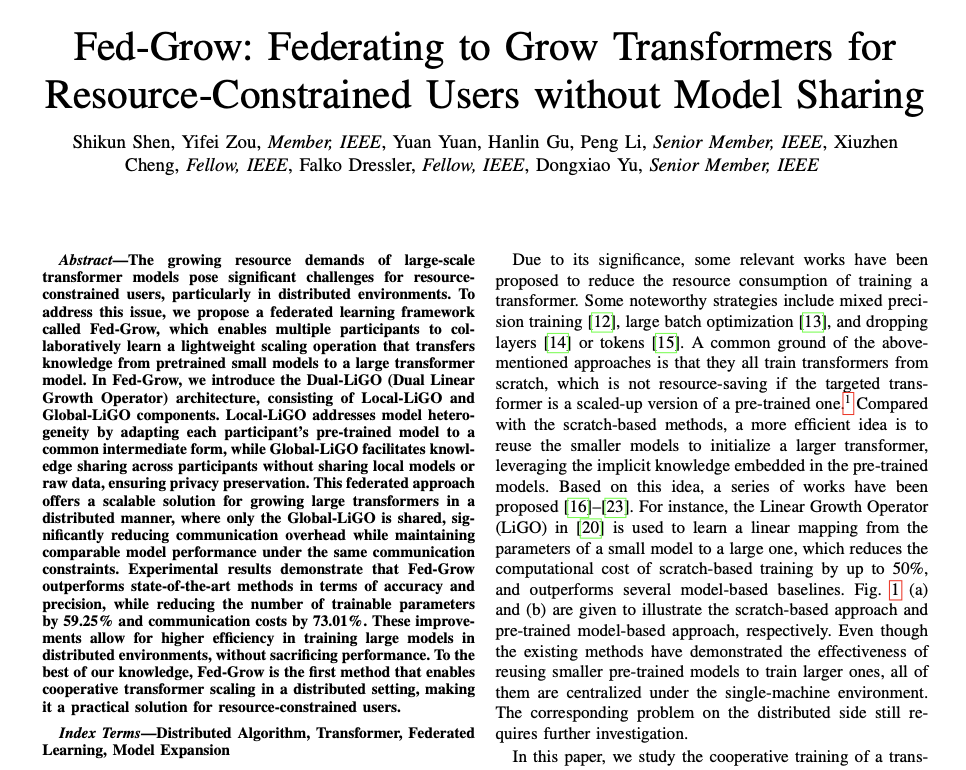SPP 2378 Resilient Worlds


ResCTC: Resilience through Cross-Technology Communication
Institutions
- TU Berlin
- FU Berlin
Team @ TKN
Funding
- DFG (Deutsche Forschungsgemeinschaft)
Project Time
- 09/2022 - 12/2027
Description
In recent years, there has been an explosive increase of broadband wireless access and proliferation of wireless Internet of Things (IoT) technologies in the unlicensed radio spectrum, e.g., in the ISM/UNII bands. As a result these bands have become massively crowded by numerous wireless devices making use of diverse technologies including WiFi, LTE-U/LAA, ZigBee, 2.4 GHz LoRa, and Bluetooth. While such heterogeneous wireless networks (HetNets) have spurred the deployment of new services and applications, it comes at the cost of resilience. HetNets not only suffer from node failures and severe cross-technology interference in the shared spectrum but, due to their open nature, they are also highly prone to selective jamming. A possible way to make HetNets more resilient is cross-technology communication (CTC). CTC is an intriguing new paradigm that allows direct over-the-air communication and data exchange between seemingly incompatible wireless technologies without requiring any changes to the wireless protocols, e.g., between WiFi and ZigBee, WiFi and LoRa, ZigBee and Bluetooth, or LTE-U/LAA and WiFi. The ambition of the ResCTC project is to leverage CTC for resilient networks and critical security applications in HetNets operating in unlicensed shared radio spectrum. Based on recent prior work by both partners on CTC and wireless security, ResCTC shall address network resilience through CTC in a common joint effort and devise comprehensive solutions that are routed both in fundamental theory (information theory and signal processing) as well as practical software implementations and proof-of-concept demonstration.
Selected Publications
2025
Journals and Magazines
 Li Yang, Yifei Zou, Zuyuan Zhang, Peng Wang, Dongxiao Yu, Anatolij Zubow, Falko Dressler and Xiuzhen Cheng, "Jamming-Resilient Physical-to-Virtual Communications in Digital Twin Edge Networks," IEEE Transactions on Networking, vol. 33 (4), pp. 1731 – 1745, August 2025.
[DOI, BibTeX, PDF, More details]
Li Yang, Yifei Zou, Zuyuan Zhang, Peng Wang, Dongxiao Yu, Anatolij Zubow, Falko Dressler and Xiuzhen Cheng, "Jamming-Resilient Physical-to-Virtual Communications in Digital Twin Edge Networks," IEEE Transactions on Networking, vol. 33 (4), pp. 1731 – 1745, August 2025.
[DOI, BibTeX, PDF, More details]
Conferences and Workshops
 Sascha Rösler, Nils Erik Eising, Anatolij Zubow and Falko Dressler, "Improving WiFi Ranging Through Frequency Diversity and Mobility," Proceedings of 50th IEEE Conference on Local Computer Networks (LCN 2025), Sydney, Australia, October 2025, pp. 1–7.
[DOI, BibTeX, PDF, More details]
Sascha Rösler, Nils Erik Eising, Anatolij Zubow and Falko Dressler, "Improving WiFi Ranging Through Frequency Diversity and Mobility," Proceedings of 50th IEEE Conference on Local Computer Networks (LCN 2025), Sydney, Australia, October 2025, pp. 1–7.
[DOI, BibTeX, PDF, More details] Jakob Johannes Rühlow, Joana Angjo, Sascha Rösler, Falko Dressler and Anatolij Zubow, "Random Access in IRS-assisted 802.11 Networks," Proceedings of IEEE International Conference on Computer Communications and Networks (ICCCN 2025), Tokyo, Japan, August 2025, pp. 1–9.
[DOI, BibTeX, PDF, More details]
Jakob Johannes Rühlow, Joana Angjo, Sascha Rösler, Falko Dressler and Anatolij Zubow, "Random Access in IRS-assisted 802.11 Networks," Proceedings of IEEE International Conference on Computer Communications and Networks (ICCCN 2025), Tokyo, Japan, August 2025, pp. 1–9.
[DOI, BibTeX, PDF, More details] Sascha Rösler, Anatolij Zubow and Falko Dressler, "Mute the Immutable - Making WiFi-to-LoRa CTC Robust Against WiFi Selective Jamming," Proceedings of 44th IEEE International Conference on Computer Communications (INFOCOM 2025), Poster Session, London, United Kingdom, May 2025, pp. 1–2.
[DOI, BibTeX, PDF, More details]
Sascha Rösler, Anatolij Zubow and Falko Dressler, "Mute the Immutable - Making WiFi-to-LoRa CTC Robust Against WiFi Selective Jamming," Proceedings of 44th IEEE International Conference on Computer Communications (INFOCOM 2025), Poster Session, London, United Kingdom, May 2025, pp. 1–2.
[DOI, BibTeX, PDF, More details] Anatolij Zubow, Joana Angjo, Sigrid Dimce and Falko Dressler, "Achieving Resilience in mmWave Communications by Using Non-reconfigurable Reflecting Surfaces," Proceedings of IEEE Wireless Communications and Networking Conference (WCNC 2025), Milan, Italy, March 2025, pp. 1–6.
[DOI, BibTeX, PDF, More details]
Anatolij Zubow, Joana Angjo, Sigrid Dimce and Falko Dressler, "Achieving Resilience in mmWave Communications by Using Non-reconfigurable Reflecting Surfaces," Proceedings of IEEE Wireless Communications and Networking Conference (WCNC 2025), Milan, Italy, March 2025, pp. 1–6.
[DOI, BibTeX, PDF, More details] Anatolij Zubow, Sascha Rösler, Juan A. Cabrera, Frank H. P. Fitzek and Falko Dressler, "Towards Resilient and Efficient Multi-RAT Operation through Network Coding," Proceedings of 20th IEEE/IFIP Wireless On-demand Network systems and Services Conference (WONS 2025), Hintertux, Austria, January 2025, pp. 135–138.
[BibTeX, PDF, More details]
Anatolij Zubow, Sascha Rösler, Juan A. Cabrera, Frank H. P. Fitzek and Falko Dressler, "Towards Resilient and Efficient Multi-RAT Operation through Network Coding," Proceedings of 20th IEEE/IFIP Wireless On-demand Network systems and Services Conference (WONS 2025), Hintertux, Austria, January 2025, pp. 135–138.
[BibTeX, PDF, More details]
Technical Reports and Regional Workshops
- Sascha Rösler, Anatolij Zubow and Falko Dressler, "Robust LoRa via Repetition in Frequency through Signal Emulation using WiFi," Proceedings of GI/ITG International Conference on Networked Systems (NetSys 2025), 1st Workshop on Resilient Networks and Systems (ReNeSys 2025), Ilmenau, Germany, September 2025, pp. 2–5. Best Paper Award [BibTeX, PDF, More details]
Talks
 Falko Dressler, "Cross-Technology Communication and Network Coding: A Great Team for Resilient Communication," Keynote, IEEE Wireless Communications and Networking Conference (WCNC 2025), International Workshop on Resilient 6G Networks (WResNet 6G 2025), Milan, Italy, March 24, 2025.
[BibTeX, More details]
Falko Dressler, "Cross-Technology Communication and Network Coding: A Great Team for Resilient Communication," Keynote, IEEE Wireless Communications and Networking Conference (WCNC 2025), International Workshop on Resilient 6G Networks (WResNet 6G 2025), Milan, Italy, March 24, 2025.
[BibTeX, More details]
2024
Journals and Magazines
 Wojciech Ciezobka, Maksymilian Wojnar, Krzysztof Rusek, Katarzyna Kosek-Szott, Szymon Szott, Anatolij Zubow and Falko Dressler, "Using Ranging for Collision-Immune IEEE 802.11 Rate Selection with Statistical Learning," Elsevier Computer Communications, vol. 225, pp. 10–26, September 2024.
[DOI, BibTeX, PDF, More details]
Wojciech Ciezobka, Maksymilian Wojnar, Krzysztof Rusek, Katarzyna Kosek-Szott, Szymon Szott, Anatolij Zubow and Falko Dressler, "Using Ranging for Collision-Immune IEEE 802.11 Rate Selection with Statistical Learning," Elsevier Computer Communications, vol. 225, pp. 10–26, September 2024.
[DOI, BibTeX, PDF, More details]
Conferences and Workshops
 Anatolij Zubow, Isabel von Stebut, Sascha Rösler and Falko Dressler, "ResCTC: Resilience in Wireless Networks through Cross-Technology Communication," Proceedings of IEEE International Symposium on Personal, Indoor and Mobile Radio Communications (PIMRC 2024), Valencia, Spain, September 2024, pp. 1–6.
[DOI, BibTeX, PDF, More details]
Anatolij Zubow, Isabel von Stebut, Sascha Rösler and Falko Dressler, "ResCTC: Resilience in Wireless Networks through Cross-Technology Communication," Proceedings of IEEE International Symposium on Personal, Indoor and Mobile Radio Communications (PIMRC 2024), Valencia, Spain, September 2024, pp. 1–6.
[DOI, BibTeX, PDF, More details]
2023
Talks
 Falko Dressler, "Resilience Through Cross-Technology Communication," Keynote, 24th IEEE International Workshop on Signal Processing Advances in Wireless Communications (SPAWC 2023), Shanghai, China, September 28, 2023.
[BibTeX, More details]
Falko Dressler, "Resilience Through Cross-Technology Communication," Keynote, 24th IEEE International Workshop on Signal Processing Advances in Wireless Communications (SPAWC 2023), Shanghai, China, September 28, 2023.
[BibTeX, More details]
2022
Journals and Magazines
 Falko Dressler, "Physical Layer Resilience through Deep Learning in Software Radios: Technical Perspective," Communications of the ACM, vol. 65 (9), pp. 82–82, September 2022.
[DOI, BibTeX, More details]
Falko Dressler, "Physical Layer Resilience through Deep Learning in Software Radios: Technical Perspective," Communications of the ACM, vol. 65 (9), pp. 82–82, September 2022.
[DOI, BibTeX, More details]
Talks
- Falko Dressler, "From Co-Existence to Resilience through Cross-Technology Communication," Seminar Talk, Seminar, Institute for the Wireless Internet of Things (WIoT), Northeastern University, Boston, MA, July 15, 2022. [BibTeX, More details]
- Falko Dressler, "From Co-Existence to Resilience through Cross-Technology Communication," Distinguished Seminar Talk, Seminar, IMDEA, Madrid, Spain, May 04, 2022. [BibTeX, More details]
- Falko Dressler, "From Co-Existence to Resilience through Cross-Technology Communication," Keynote, International Conference on Wireless Communications Signal Processing and Networking (WiSPNET 2022), Virtual Conference, March 24, 2022. [BibTeX, More details]





